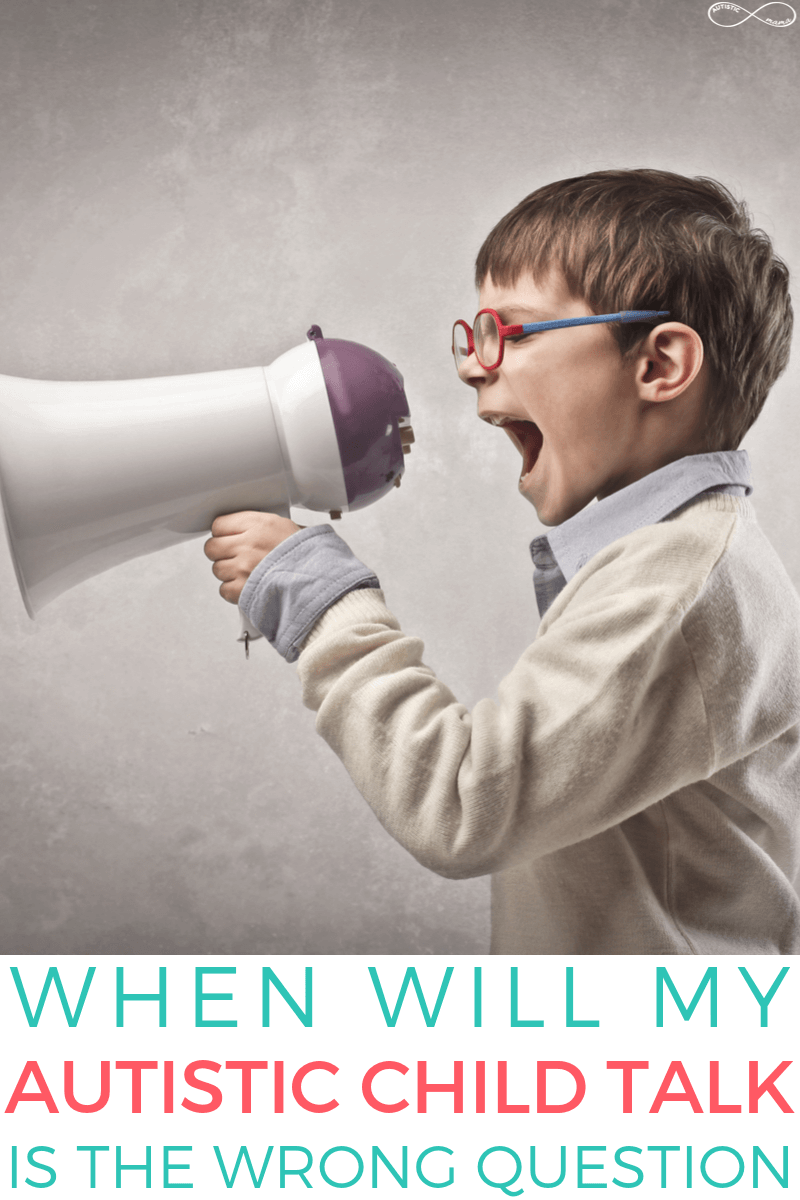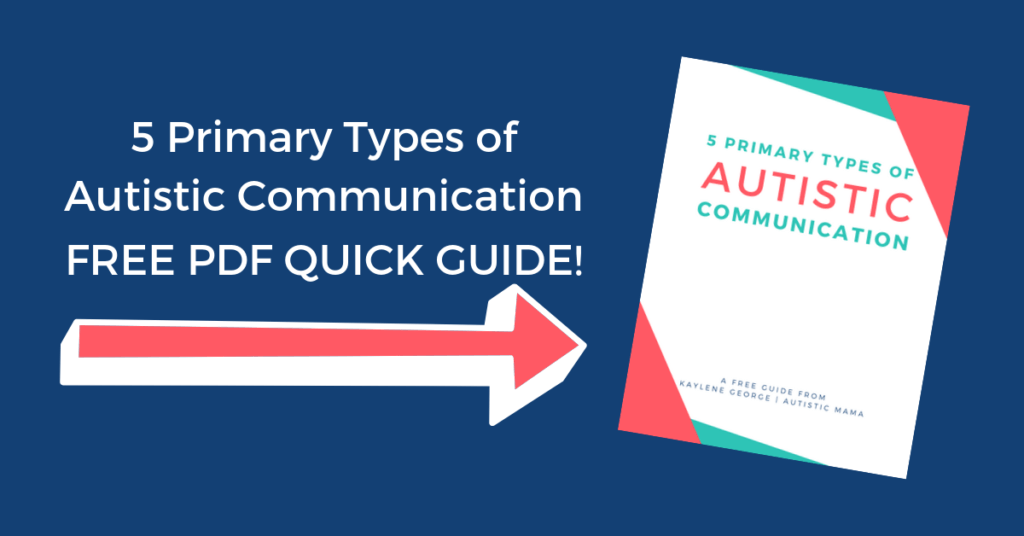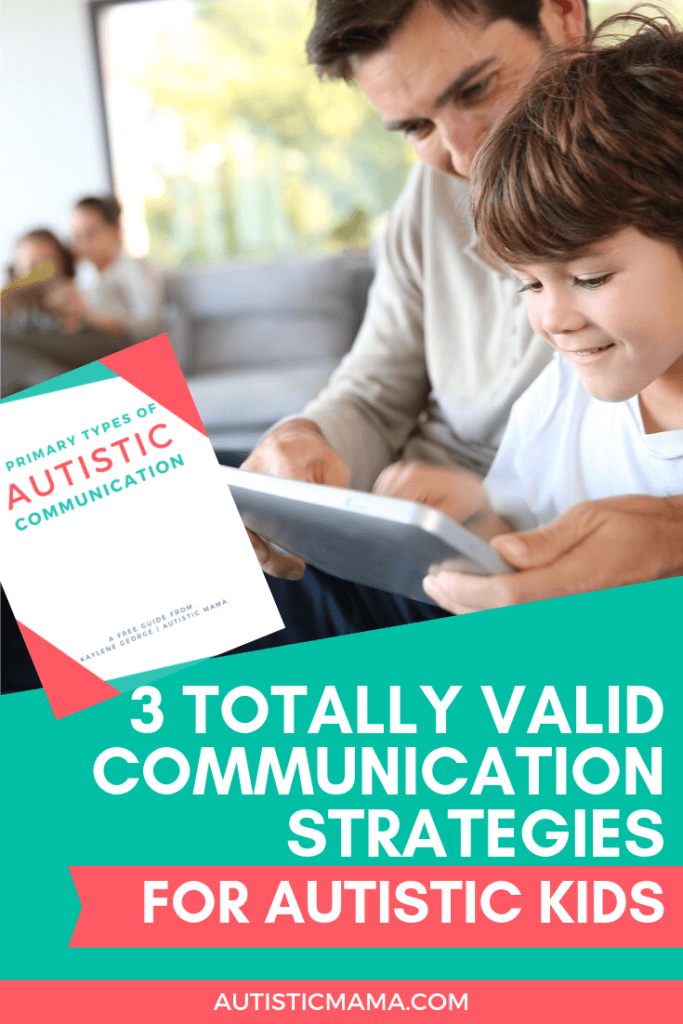I have a lot of readers who find my blog when their autistic child was diagnosed recently, or even while they’re waiting for their child’s official diagnosis.
And oftentimes, their child is non-speaking or really struggles to communicate verbally.
The first question I’m asked is often, “when will my autistic child talk?”
And I get it. As parents, you often look forward to hearing your child speak.
But when we focus so much on wondering when our autistic children will talk, there’s a lot that we miss.
See, “When Will My Autistic Talk” is the wrong question… But let’s take a look at why.

When Will My Autistic Child Talk is the Wrong Question
First, if you’ve been asking this question as the parent of an autistic child, I don’t want you to feel guilt with this post.
Wanting your child to talk does not make you a bad parent AT ALL.
In fact, it often means that you’re a great parent!
See, in our minds, our child talking means so much…
It means they can share their thoughts and ideas.
It means they can connect with other people.
It means they can advocate for themselves and get their needs met.
But the thing is… It isn’t really talking that does all of that for our kids.
It’s communication.
Communication allows your autistic child to share their thoughts and ideas, connect with other people, advocate for themselves, and get their needs met.
But the fact is there are 5 specific types of autistic communication. And verbal communication is just one.
Verbal Communication Isn’t Always Best
And the thing is… Verbal communication isn’t always the best type of communication.
It’s often the one that neurotypicals prefer, but it can be incredibly difficult for autistics.
See, when autistics communicate verbally, we tend to speak directly. We mean what we say and say what we mean.
Neurotypicals… Don’t.
Not to mention verbally communicating requires a ton of brain power to think about what we want to say, access those words, form those words, and actually clearly communicate them…
It’s exhausting and often overwhelming for a lot of autistics.
Communication Should be the Priority
The fact is, instead of asking “when will my autistic child talk?” we should be asking “how can my autistic child communicate?”
The priority should be on empowering our autistic child’s communication abilities.
That’s where the true power is.
That’s what helps them connect with others. That’s what helps them self-advocate. That’s what helps them get their needs met.
But here’s a secret…
Your autistic child already has the ability to communicate.
Yes, even if they’re completely non-speaking.
Yes, even if they don’t use PECS or sign language.
Yes, even if you are positive they don’t communicate.
They do, I promise you.
See, there are 5 primary types of autistic communication, and EVERY autistic person communicates with one or more of these types.
The 5 Types of Autistic Communication {Free Guide!}
I’ve put together a free downloadable guide that dives into each of the 5 types of autistic communication, and you can click here to get yours!
This guide will help you determine what your autistic child’s primary communication type is, and what your specific next steps should be to empower your child’s communication!

And if you loved this post, you might also enjoy…
3 Totally Valid Strategies to Help Your Autistic Child Communicate Without Talking

